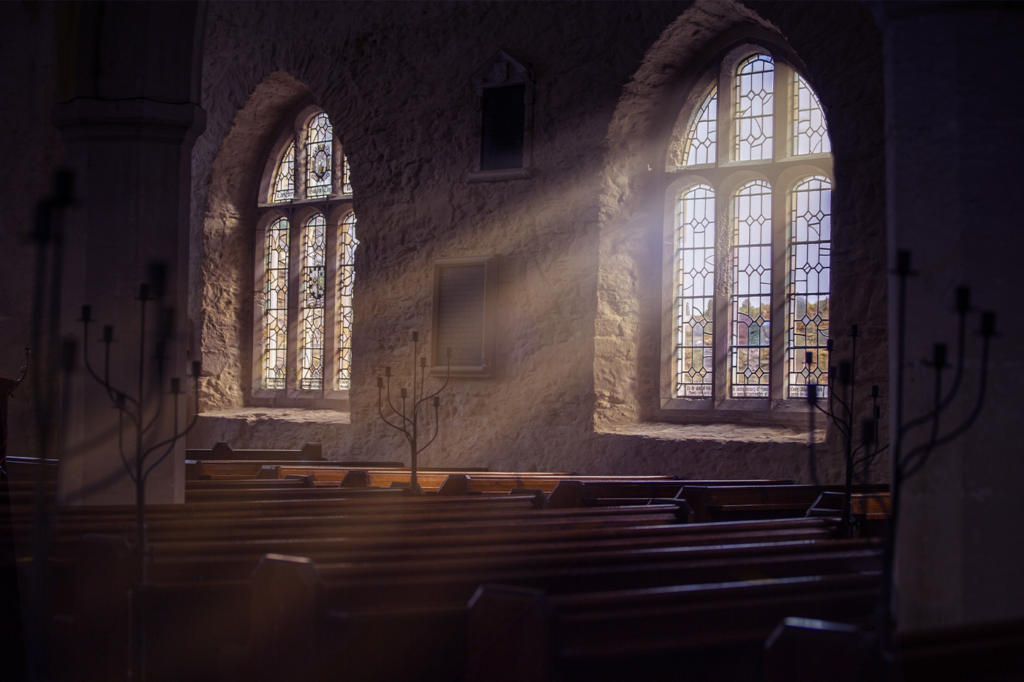Like many others, I find myself discouraged and frustrated by the state of the world. It’s not just the perennial human things that weigh on me—war, death, suffering, injustice—although those do, too. It’s a general malaise, the sense that things are falling apart, the center is not holding, and those things I care about and define my life around are failing.
Religious commitment is in sharp decline, almost free fall. Many religious leaders seem clueless or indifferent to this fact, offering a thin gruel of therapeutic deism, cheap symbolic activism, carefully couched heresy, and uninspiring nonsense instead of sound doctrine and right reason.
With cultural conditions such as these, there is a temptation to play prophet, to thunder condemnation, to arrogate the office of a Jeremiah or Micah for oneself.
The schools and universities are adrift, apparently ignorant of their higher purposes, or outright hostile to them. Free inquiry is belittled and stifled, and entire disciplines have become inimical to the pursuit of truth while others sink into decadence and irrelevance. Libraries and primary schools promote perversion, celebrating disorder and confusion about sex and gender, all while beaming with self-congratulation and pride for destroying the innocence and well-being of their vulnerable charges. What Leon Kass calls the “higher cynicism” has left many adrift, without recourse to the traditions of wisdom that might provide direction and guidance for life. Such cynicism is rampant in the media, entertainment, the culture industry, moreover, so the lessons of school are incessantly reinforced.
Start your day with Public Discourse
Sign up and get our daily essays sent straight to your inbox.Marriage is in decline. The nature of marriage is misunderstood. Deaths of despair are on the rise. Fertility has collapsed, as those without purpose or hope refuse the human project. We continue to slaughter the unborn in the womb, with countless embryos discarded or frozen. Our cultured despisers livestream their abortions and fête themselves with galas and awards. Pornography warps the bodies and souls of the young.
As for politics and politicians . . . it’s all too easy to conclude that ours is not the age of Pericles and Themistocles. Wordsworth could be writing of us that we are “a fen / Of stagnant waters: altar, sword, and pen. . . . / We are selfish men / Oh! raise us up, return to us again / And give us manners, virtue, freedom, power.”
I could go on.
With cultural conditions such as these, there is a temptation to play prophet, to thunder condemnation, to arrogate the office of a Jeremiah or Micah for oneself. I sympathize, but I’m discouraged by the nastiness of so much of it. Catholic Twitter, which I mostly avoid, is full of “prophets.” I understand the disappointment and malaise that some Church leaders “inspire,” but we’ve descended into panicked vitriol and vindictiveness. So, too, the world of conservative politics, with much of “movement conservatism” all but unbearable in its tone and faux-urgency. And that’s the war of words between friends, colleagues, co-religionists, those who share convictions.
By now this is well-known, and I’ll not reiterate pleas for civility and decency. Instead, I suggest that behind the stridency is rank despair, a failure of hopefulness. Not the sharp wisdom of the clear-headed, not even the moral demands of the righteous, but instead the anger of those who lack hope, who have given in to despair.
Despair is the unforgivable sin, for the despairing conclude that God will not or cannot act, that the universe is fundamentally unfriendly and inhospitable to the true, good, and beautiful, and that humanity has lost the imago Dei. To judge in this way is to deny the goodness of the world and its Creator and sustainer, and that is the sin of all sins.
Despair is the unforgivable sin, for the despairing conclude that God will not or cannot act, that the universe is fundamentally unfriendly and inhospitable to the true, good, and beautiful, and that humanity has lost the imago Dei. To judge in this way is to deny the goodness of the world and its Creator and sustainer, and that is the sin of all sins.
I sometimes fear that many who share my own values and commitments have capitulated to the same spiritual inertia and poverty that infects so many in our time. Kass, quoting Irving Kristol, notes that our society has produced “a world prosperous beyond all previous imaginings,” but “this world, with every passing decade, has become ever more spiritually impoverished. That war on poverty is the great unfinished task before us.” That is, many suffer from a spiritual poverty so profound and all-encompassing that its dehumanizing and enervating effects are thought normal, as if the loss of transcendence is simply how things are and ought to be. The spiritually impoverished don’t recognize their poverty; in fact, they think they are awake, seeing farther and better than anyone else.
In their pretension, they gasp and rage, proclaiming wisdom while aghast that so few heed them. But in the poverty of their hopelessness, they risk becoming fools. As Kass insists, the most indispensable virtue is hope, which is not optimism or a vague sentiment, but a disposition that all will turn out well in the end. Kass does not say this, but I would add that this disposition is convinced that God does not fail to keep his promises. Kass insists, wisely, that hope is not hope for change, but rather an affirmation of permanence, of the permanent possibility of a meaningful life in a hospitable and meaningful universe. In the reality of that permanence, how brief and vain is the trumpeting of those who believe they have cast off the eternal verities and become little gods, and how bereft of hope are those who rage against the darkness.
The Psalmist instructs us: “When you are disturbed, do not sin; ponder it on your beds, and be silent. Offer right sacrifices, and put your trust in the Lord” (Ps. 3:4–5).
For those of us involved in the cultural and educational struggles of our time, the Psalmist gives good counsel. Yes, we are disturbed and troubled, but we are not prophets or saviors. It would be far, far better for us if we pondered and waited, prayed and offered our sacrifices, in a quieter trust than we sometimes display. It’s true that we ought not be entirely silent, we cannot in good conscience abdicate responsibility or abandon the vulnerable, but we can be quietly insistent, unrelenting in our efforts, because we have the essential virtue of hope.
My resolution for 2020 is to learn a quiet hope. It would do me well.
It might do many of us well.













